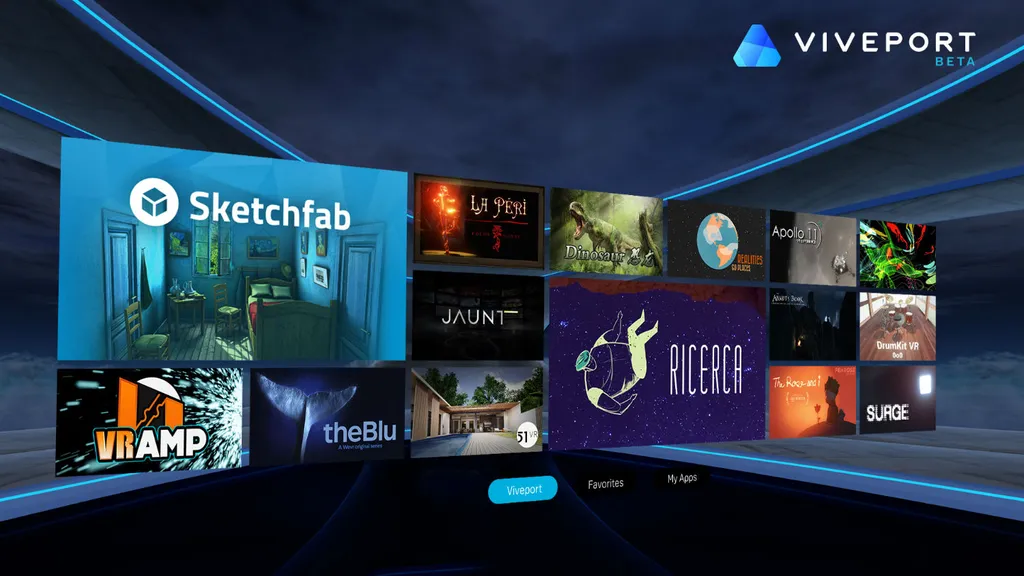HTC’s Viveport virtual reality software store is launching a developer beta in the coming weeks with a global launch this fall.
The store originally debuted in China in April, where Valve’s Steam store isn’t officially available. Elsewhere in the world Viveport will be offered alongside Steam. Representatives from HTC, creators of the Vive VR headset which runs Valve’s SteamVR software, said in an interview with Upload the company is splitting revenue with developers in line with other software stores, which give developers roughly 70 percent of the revenue from sales.
The Viveport store is looking to offer categories other than games in its store, with a focus on educational and creative content. A variety of monetization options are planned for developers including in-app purchases and subscriptions. It’s a touchy subject among some of the most vocal early VR adopters, but, according to an HTC representative, the company isn’t pursuing exlcusivity for software offered through its store — “we’re recommending for developers to publish their apps in as many places as possible.”
“We believe equal access to virtual reality experiences will make the world a better place,” said Rikard Steiber, senior vice president of Viveport, in a prepared statement. “An important goal for the Viveport team is to enable developers to reach a global audience and grow their business.”
According to HTC, the company has thousands of developers working with Viveport already and offers more than 100 apps. It sounds like the revenue split could be modified depending on what additional assistance HTC offers, such as additional marketing or localization help. HTC also recently announced the first companies in the Vive X investment program.
Overall, HTC is promising a smoother interface for purchasing software than the somewhat awkward “Big Picture” interface offered for Steam, which basically gives you a big screen in VR with which to make your software selections. The store is essentially being pitched as a boutique version of Steam that focuses on non-games and gives developers access to a larger potential audience with its availability in China and elsewhere around the world. We haven’t gone hands on with Viveport yet, so we can’t speak to any differences first-hand.
HTC declined to provide specific unit numbers, but a company representative said that the Americas and Europe are its two largest markets followed by China, which is growing into a “significant piece of the pie.”


























